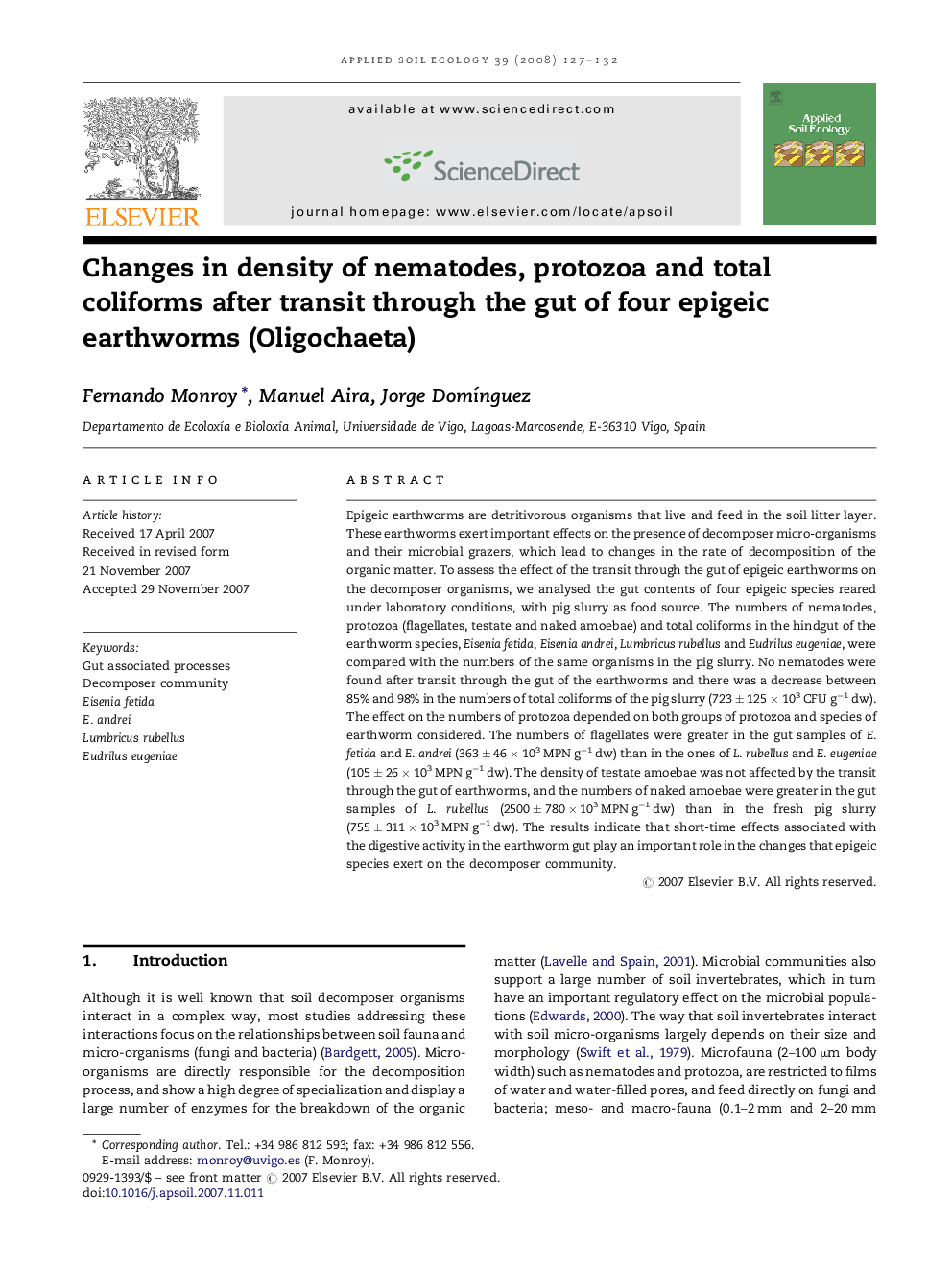| Article ID | Journal | Published Year | Pages | File Type |
|---|---|---|---|---|
| 4383191 | Applied Soil Ecology | 2008 | 6 Pages |
Epigeic earthworms are detritivorous organisms that live and feed in the soil litter layer. These earthworms exert important effects on the presence of decomposer micro-organisms and their microbial grazers, which lead to changes in the rate of decomposition of the organic matter. To assess the effect of the transit through the gut of epigeic earthworms on the decomposer organisms, we analysed the gut contents of four epigeic species reared under laboratory conditions, with pig slurry as food source. The numbers of nematodes, protozoa (flagellates, testate and naked amoebae) and total coliforms in the hindgut of the earthworm species, Eisenia fetida, Eisenia andrei, Lumbricus rubellus and Eudrilus eugeniae, were compared with the numbers of the same organisms in the pig slurry. No nematodes were found after transit through the gut of the earthworms and there was a decrease between 85% and 98% in the numbers of total coliforms of the pig slurry (723 ± 125 × 103 CFU g−1 dw). The effect on the numbers of protozoa depended on both groups of protozoa and species of earthworm considered. The numbers of flagellates were greater in the gut samples of E. fetida and E. andrei (363 ± 46 × 103 MPN g−1 dw) than in the ones of L. rubellus and E. eugeniae (105 ± 26 × 103 MPN g−1 dw). The density of testate amoebae was not affected by the transit through the gut of earthworms, and the numbers of naked amoebae were greater in the gut samples of L. rubellus (2500 ± 780 × 103 MPN g−1 dw) than in the fresh pig slurry (755 ± 311 × 103 MPN g−1 dw). The results indicate that short-time effects associated with the digestive activity in the earthworm gut play an important role in the changes that epigeic species exert on the decomposer community.
